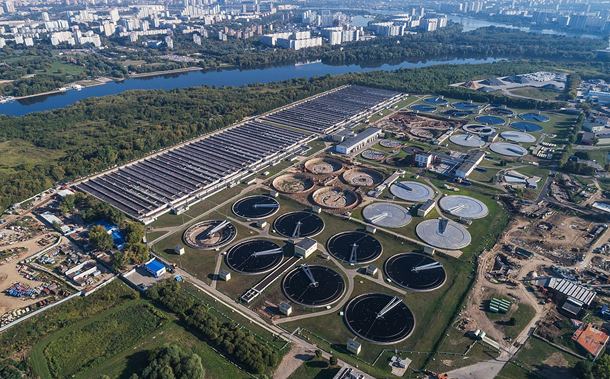Mechanical Behavior of Concrete Reinforced with Waste Aluminium Strips
Downloads
Doi:10.28991/cej-2021-03091718
Full Text:PDF
Downloads
[2] Lakhiar, M. T., N. Mohamad, M. A. B. Shaikh, A. A. Vighio, A. A. Jhatial, and A. A. Abdul Samad. "Effect of River Indus Sand on Concrete Tensile Strength.” Engineering, Technology & Applied Science Research 8, no. 2 (April 19, 2018): 2796–2798. doi:10.48084/etasr.1869.
[3] Altun, Fatih, Tefaruk Haktanir, and Kamura Ari. "Effects of Steel Fiber Addition on Mechanical Properties of Concrete and RC Beams.” Construction and Building Materials 21, no. 3 (March 2007): 654–661. doi:10.1016/j.conbuildmat.2005.12.006.
[4] Wang, Yizhong, Qunwei Wang, Ye Hang, Zengyao Zhao, and Shilong Ge. "CO2 Emission Abatement Cost and Its Decomposition: A Directional Distance Function Approach.” Journal of Cleaner Production 170 (January 2018): 205–215. doi:10.1016/j.jclepro.2017.09.122.
[5] Romualdi, James P., and Gordon B. Batson. "Mechanics of Crack Arrest in Concrete.” Journal of the Engineering Mechanics Division 89, no. 3 (June 1963): 147–168. doi:10.1061/jmcea3.0000381.
[6] Wang, Youjiang, H. C. Wu, and Victor C. Li. "Concrete Reinforcement with Recycled Fibers.” Journal of Materials in Civil Engineering 12, no. 4 (November 2000): 314–319. doi:10.1061/(asce)0899-1561(2000)12:4(314).
[7] Hussain, Iqrar, Muhammad Yaqub, Adeel Ehsan, and Safi Ur Rehman. "Effect of Viscosity Parameter on Numerical Simulation of Fire Damaged Concrete Columns.” Civil Engineering Journal 5, no. 8 (August 25, 2019): 1841–1849. doi:10.28991/cej-2019-03091376.
[8] Lakhiar, M. T., S. Sohu, I. A. Bhatti, N. Bhatti, S. A. Abbasi, and M. Tarique. "Flexural Performance of Concrete Reinforced by Plastic Fibers.” Engineering, Technology & Applied Science Research 8, no. 3 (June 19, 2018): 3041–3043. doi:10.48084/etasr.2084.
[9] Ilya, J, and C Cheow Chea. "Mechanical Behaviour of Fibre Reinforced Concrete Using Soft – Drink Can.” IOP Conference Series: Materials Science and Engineering 271 (November 2017): 012079. doi:10.1088/1757-899x/271/1/012079.
[10] Haryanto, Yanuar, Arnie Widyaningrum, Gathot Heri Sudibyo, and Agus Maryoto. "Mechanical Properties of Lightweight Aggregate Concrete Reinforced with Soda Can Waste Fibre.”. MATEC Web of Conferences 138 (2017): 01021. doi:10.1051/matecconf/201713801021.
[11] Nainggolan, Christin Remayanti, Indradi Wijatmiko, and Ari Wibowo. "Effect of Twisted Soft Drink Can Waste Fiber on the FRC Flexural Behavior.” ICCOEE2020 (2021): 443–449. doi:10.1007/978-981-33-6311-3_51.
[12] Aslan, M., O. Guler, K. Cava, U. Alver, and E. Yuceloglu. "An investigation on the mechanical properties of the sandwich panel composites." In 2nd International Defense Industry Symposium Science Board, Kırıkkale, Turkey, Aprıl. (2017): 6-8.
[13] Kishore, Kamal. "Experimental Analysis on Comparison of Compressive Strength Prepared with Steel Tin Cans and Steel Fibre.” International Journal for Research in Applied Science and Engineering Technology 7, no. 4 (April 30, 2019): 169–172. doi:10.22214/ijraset.2019.4030.
[14] Haque, Mohaiminul, Sourav Ray, MD Zikurul Islam, Kamlesh Mahato, and Morshed Washif. "Utilization of Waste By Using Stone Dust As Fine Aggregate and Condensed Milk-Can As Fiber Reinforcement in Concrete." no. February (2012): 9-11.
[15] Wijatmiko, Indradi. "Strength Characteristics of Wasted Soft Drinks Can As Fiber Reinforcement in Lightweight Concrete.” International Journal of GEOMATE 17, no. 60 (August 1, 2019): 31–36. doi:10.21660/2019.60.4620.
[16] Foti, Dora. "Innovative Techniques for Concrete Reinforcement with Polymers.” Construction and Building Materials 112 (June 2016): 202–209. doi:10.1016/j.conbuildmat.2016.02.111.
[17] Xiong, Chen, Tianhao Lan, Qiangsheng Li, Haodao Li, and Wujian Long. "Study of Mechanical Properties of an Eco-Friendly Concrete Containing Recycled Carbon Fiber Reinforced Polymer and Recycled Aggregate.” Materials 13, no. 20 (October 15, 2020): 4592. doi:10.3390/ma13204592.
[18] Bentz, Dale P., Andrew S. Hansen, and John M. Guynn. "Optimization of Cement and Fly Ash Particle Sizes to Produce Sustainable Concretes.” Cement and Concrete Composites 33, no. 8 (September 2011): 824–831. doi:10.1016/j.cemconcomp.2011.04.008.
[19] Bondar, D., Lynsdale, C., Ramezanianapour, A., Milestone, N., "Alkali activation of natural pozzolan for geopolymer cement production”, International Conference on Sustainable Construction, Materials and Technologies, (2007): 313–317.
[20] Olivito, R.S., and F.A. Zuccarello. "An Experimental Study on the Tensile Strength of Steel Fiber Reinforced Concrete.” Composites Part B: Engineering 41, no. 3 (April 2010): 246–255. doi:10.1016/j.compositesb.2009.12.003.
[21] Hikmatullah Aziz1, Vipasha Rishi2, "Review paper on concrete using soft drink aluminum cans fiber”, International Research Journal of Engineering and Technology (IRJET) 7, no. 02, (February 2020): 348–352.
[22] Turner, Terence, "Canmaking for Can Fillers”, Boca Raton, CRC Press, (2001): 23.
[23] Vela, M.M., R.B. Toma, W. Reiboldt, and A. Pierri. "Detection of Aluminum Residue in Fresh and Stored Canned Beer.” Food Chemistry 63, no. 2 (October 1998): 235–239. doi:10.1016/s0308-8146(97)00236-7.
[24] A.M. Neville, "Properties of Concrete”, (4th Edition), Longman, England (2000).
[25] Tretyakav A, "Concrete and concreting”, Mir Pub Moscow, (1968).
[26] Lyndon FD, "Concrete Mix Design”, Applied Science UK, (1972).
[27] Lalonde, "Concrete Engg”. Hand Book McGraw. Hill USA, (1961).
[28] ASTM C496-96, "Standard Test Method for Splitting Tensile Strength of Cylindrical Concrete Specimens”, ASTM International, West Conshohocken, PA, (1996).
[29] ASTM C78 / C78M-18, "Standard Test Method for Flexural Strength of Concrete”, (Using Simple Beam with Two-Point Loading), ASTM International, West Conshohocken, PA, (2018).
- Authors retain all copyrights. It is noticeable that authors will not be forced to sign any copyright transfer agreements.
- This work (including HTML and PDF Files) is licensed under a Creative Commons Attribution 4.0 International License.![]()















